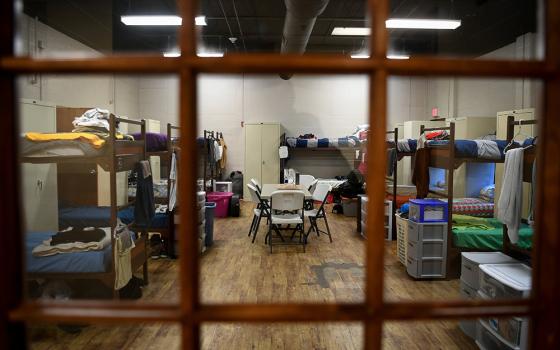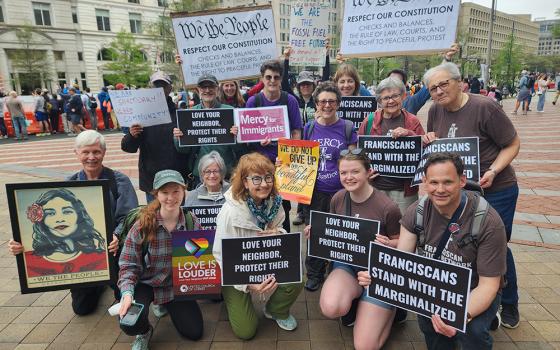A recent comment by Pope Francis about educating the children of homosexual couples is being twisted both by the political right and left to suggest that the pontiff has waded into a debate over same-sex unions, according to a key papal confidant.
Jesuit Fr. Antonio Spadaro, editor of the influential journal Civiltà Cattolica, published a front-page essay in Tuesday's Corriere della Sera, Italy's paper of record, responding to widespread claims in the Italian media of an "opening" by Francis to legal recognition of same-sex relationships.
In fact, Spadaro wrote, Francis has no intention of "legitimizing any behavior that's inconsistent with the doctrine of the church."
The effort to twist the pope's words, Spadaro wrote, comes both "from his 'detractors' on the right, as well as those who exalt him in order to take advantage of him on the left." He called those efforts "misleading" and a form of "manipulation."
Spadaro insisted that comments by Francis to the effect that the children of gay couples shouldn't receive a "vaccine against the faith" do not imply any revision to church teaching on marriage.
"Mercy doesn't mean justifying sin, but tenderly reaching out to the humanity for which Christ went to the Cross," Spadaro wrote.
Spadaro was the architect of the blockbuster interview with Francis in September carried by Jesuit publications around the world, and it was also Spadaro who recently released extensive notes from the pope's Nov. 29 meeting with the superiors of men's religious orders.
The 47-year-old Spadaro, who's led Civiltà Cattolica since 2011, has been widely mentioned as a possible successor to Jesuit Fr. Federico Lombardi as the pope's top spokesman.
The current controversy began Saturday, when Spadaro released his notes from the pope's meeting with superiors. Among other highlights, Francis identified several challenges to education arising from changing family situations.
According to Spadaro's write-up, the pope described a situation that he faced as archbishop of Buenos Aires, Argentina: "I remember the case of a sad little girl," Spadaro quoted Francis as saying, "who finally confided to her teacher the reason for her state of mind: 'My mother's fiancée doesn't like me.' "
In Italian, Francis used the feminine ending for "fiancée," making clear the reference was to a lesbian couple.
Reflecting on how to reach out to children living in such situations, Francis said, "We must be careful not to administer a vaccine against the faith to them."
Coincidentally, Italy is gearing up for a national debate over same-sex unions after the new leader of the center-left Democratic Party announced that support for legal recognition of those unions would be a component of the party's electoral platform.
In that context, several media outlets suggested Francis' comments amounted to an indirect "opening" to the idea.
In his essay, Spadaro referred to those claims as "misleading in understanding of what the pope actually said, and the great challenge that he laid out."
The real point Francis wanted to make, Spadaro wrote, is that "the church is called to respond to an enormous anthropological challenge" created by changing social situations and norms.
"The Christian educational challenge," Spadaro wrote, "consists in avoiding that the light of Christ remains only a distant memory for many, or, worse yet, that it stays in the hands of a small and elect crowd of the 'pure,' which would transform the church into a sect."
Spadaro's suggestion appeared to be that the pope does not intend to change doctrine, but rather to find new language to express that doctrine to people who no longer respond to traditional formulae.
This is not the first time Spadaro has tried to clarify a papal remark that originated in something he himself published.
When the Civiltà Cattolica interview appeared in September, one widely quoted line was Francis' insistence that "I have never been a right-winger."
Spadaro was later compelled to explain that what Francis meant was that he had never been a supporter of Argentina's military regime in the 1970s and '80s. The pope did not mean to locate himself, Spadaro said at the time, on the contemporary ideological spectrum.
[Follow John Allen on Twitter: @JohnLAllenJr.]



